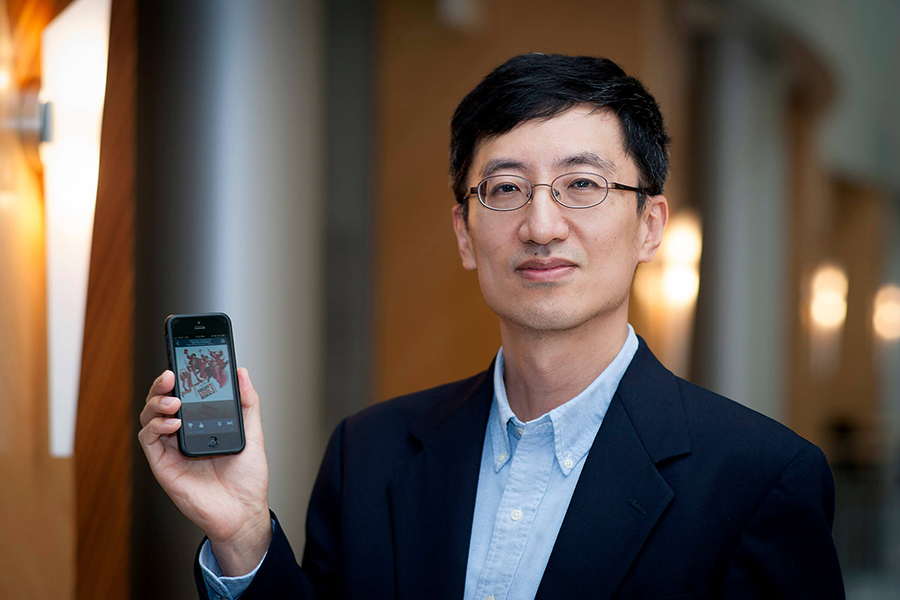Prof. Y. Charlie Hu wins EuroSys Test-of-Time Award

Y. Charlie Hu, Michael And Katherine Birck Professor of ECE in Purdue University’s Elmore Family School of Electrical and Computer Engineering, has won the EuroSys Test-of-Time Award. This is an annual prize awarded to one EuroSys paper, from those published 10 years earlier, that has been considered by the EuroSys Steering Committee and Officers as the one having most lasting and current impact.
Hu and his co-authors are being recognized for their EuroSys'12 paper “Where is the energy spent inside my app? Fine Grained Energy Accounting on Smartphones with Eprof,” which details the developing of the first source-code-level energy profiler for smartphone apps.
In the early years of the smartphone era (since the release of iPhone in 2007), as both smartphones and the mobile apps running on them experienced explosive growth, many smartphone users routinely experienced severely shortened battery life.
While in online forums many smartphone users pointed fingers at power-hungry apps as the culprit, the industry did not have a good solution for helping app developers pinpoint the causes for such unexpected battery drain.
The industry critically needed some automatic tools that could accurately break down the total battery drain of an app by power-hungry phone components such as the CPU, GPS, GPU, network interface, at the app source code level, an app energy drain analysis known as energy profiling. Such an energy profiling tool would allow developers to instantly pinpoint energy “hotspot” or energy leaking code segments among potentially millions of lines of complex source code of a mobile app, and remove such energy drain culprits in the app source code with more efficient implementations or simply removing energy buggy code.
The award paper answered this dire question faced by the app developers, “where is energy drain happening in my app?”, by developing the first source-code-level energy profiler for smartphone apps called Eprof. Eprof is an instant enabler for developers to start understanding app energy drain. Equipped with Eprof, the paper conducted the rst ever inside-look of app energy drain of half a dozen most popular smartphones apps at the time. One of its many findings, that AngryBirds spends 80% of its energy in ads, became the first public understanding of how apps drain battery and was reported by 500+ news media worldwide in 2012 including ABC News, BBC, Scientific American, and MIT Tech Review. Using Eprof , the authors revealed, for the first time, the occurrence of “wakelock bugs”, the most prevalent and severe class of “energy bugs” in smartphone apps in the early years.
“Perhaps the most gratifying outcome of this work is to see that over the years, the paper’s key ideas and discoveries have inspired or directly influenced the design of various industry solutions on optimizing mobile app battery drain such as Facebook’s Battery Metrics tool - an open-source in-the-wild battery drain monitoring tool and wakelock energy drain profiling in Google’s Android Studio,” said Hu. “Today such tools are routinely used by app developers to curb the battery drain of millions of apps.”
With more than 850 citations in the past decade, the paper has inspired many avenues of follow-up research on investigating energy profiling, energy debugging, and energy optimization techniques for mobile apps.
Co-authors on the paper are Abhinav Pathak (Purdue University, PhD ECE ’12) and Ming Zhang (Microsoft Research).
